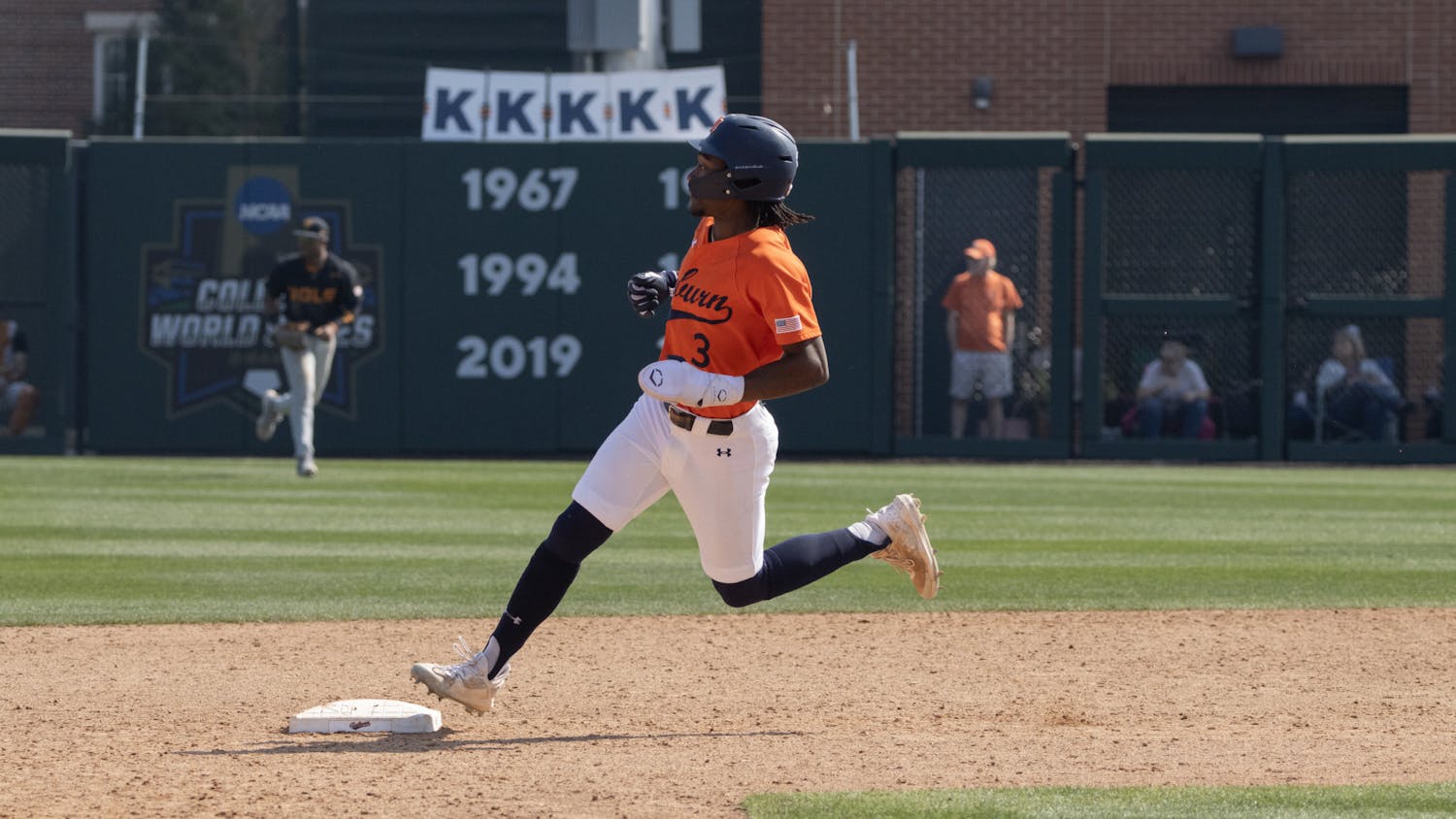Prosecutors called more witnesses today in the felony ethics trial of House Speaker Mike Hubbard.
Chris Hines, former executive vice president of Hubbard's media and advertising company Auburn Network Inc., testified today to contracts between Auburn Network and several entities for what the prosecution alleges are lobbying deals.
The defense says the contracts are legal and are media consulting contracts between the Auburn Network and the clients, which includes the Southeast Alabama Gas District, American Pharmacy Cooperative Inc., Edgenuity and CV Holdings subsidiary Capitol Cups.
Prosecution presented dozens of checks that show the companies paying Hubbard's company sums that includes $12,000, $10,000, $7,500 and $5,000 a month in "consulting fees."
Hines testified he didn't know what Hubbard was consulting the businesses on, and that the contracts were "unique" in the 15 years he's been at the Auburn Network.
A memo line on one of the checks from Edgenuity, an education software company formerly known as E2020, even said the $7,500 check was for its monthly "lobbying services."
Hubbard received a $132,000 salary. For many months, he was contributing more than $30,000 to the account, according to the defense.
Bill Baxley, Hubbard's defense attorney, said that Hubbard was on salary, and he was contributing more to the company than he was profiting.
According to Deputy Attorney General Matt Hart's opening testimony yesterday, it doesn't matter if Hubbard profited, only that the relationship existed. State ethics law doesn't require a defined quid pro quo, or a this-for-that relationship.
Baxley also read portions of the contracts that excluded the state of Alabama from Hubbard's consulting area — all of the contracts except for the Southeast Alabama Gas District.
The defense claims all of Hubbard's consulting was for media and advertising outside of the state.
Barry Whatley, president and co-owner of Craftmasters Printing, was the first witness on the stand this morning.
Hubbard is another co-owner and is accused directing business and investments to the printing company through his positions as Alabama Republican Party chairman and later Alabama House Speaker.
Whatley said he and Hubbard, along with former Auburn coach Pat Dye, Doug Taylor and Phillip Cole, purchased the Auburn-based printing company in 2000 after Auburn Bank foreclosed on the previous owners due to debt taken on from purchasing new printing presses.
Hubbard, Whatley and Cole remain the owners of the business with a combined 55 percent ownership of the company's common stock. Ten other investors own the remaining 45 percent of the company's stock, according to Whatley.
Hubbard recruited eight of the 10 investors, each of which provided $150,000 capital to help the company pay off more than $8.8 million in debt. Hubbard is accused by the prosecution of directing four of the 8 investors by using the mantel of his office as House speaker and Alabama GOP chairman.
Whatley said he only recruited one investor.
The recruitment of the four investors accounts for four of the 23 charges against Hubbard.
The prosecution used Whatley's testimony to paint Hubbard as desperate to save his struggling business. If Craftmaster's went under while Hubbard, Whatley and Cole were the majority stakeholders, they would have been responsible for the company's debts.
The business faced bankruptcy in 2005, but eventually withdrew. Whatley compared the task of getting the business out of debt to "raising the titanic."
"We just got to a point in the business where everything we did and everything we made was just going to pay off this $8.8 million worth of debt," Whatley said. "It was suffocating the business."
On top of that, the prosecution questioned Whatley about another business they own, Swan LLC, a holding company that owned the building out of which Craftmasters ran their business.
Craftmaster rented the space from Swan LLC.
According to Whatley, their holding company Swan LLC still owed money on the building, but if Craftmaster had to close today they would have enough money "to pay the bills."
Nevertheless, the prosecution asked Whatley if he and the other owners, including Hubbard, would have been financially responsible if the businesses failed, to which he answered yes.
Hubbard also faces four charges of using his office as GOP chairman to directing business and financial gain to Craftmasters.
Yesterday, John Ross, former Alabama Republican Party executive director, and Tim Howe, another former executive director, both testified that Hubbard directed them to use a Craftmasters Printing for several print jobs the party needed.
They also testified that Hubbard directed them to use a direct-mailing and political advertising firm based out of southern Florida called Majority Strategies.
The witnesses testified they knew that Majority Strategies used Craftmaster for their printing and mailing services. The prosecution alleges that Hubbard's business received more than $700,000 from the business deals associated with his term as party chair.
Craftmasters had been printing for Majority Strategies since 2004, but it wasn't until later that the GOP began using the firm for their direct-mailers.
Whatley read an email he sent to an executive at Majority Strategies Brett Burke. In the email he said it was apparent Burke didn't really like Craftmasters.
"I have researched your files, and I have not been able to find a single job since 2009 that did not come to Craftmaster via majority strategies that is not directly linked to Mike Hubbard," Whatley said reading from the email.
Alabama House Clerk Jeff Woodard testified third before lunch today. Woodard's testimony confirmed Hubbard voted on a 2013 House version of the state's General Fund Budget.
The house version had lines in the bill that would have essentially given the American Pharmacy Cooperative Inc. a monopoly of the state's pharmacy benefits manager.
The prosecution says Hubbard was on the payroll of the APCI when he voted on that iteration of the bill, a clear conflict of interest in their view.
Ross and Howe also testified on Tuesday that they severed ties with Hubbard when they found out he was being paid by APCI. According to the defense, when Hubbard found out about the language after the bill passed the House he worked to have the language removed in conference committee before the Senate passed a final version of the bill.
The final version did not include the monopoly for APCI.
Do you like this story? The Plainsman doesn't accept money from tuition or student fees, and we don't charge a subscription fee. But you can donate to support The Plainsman.



